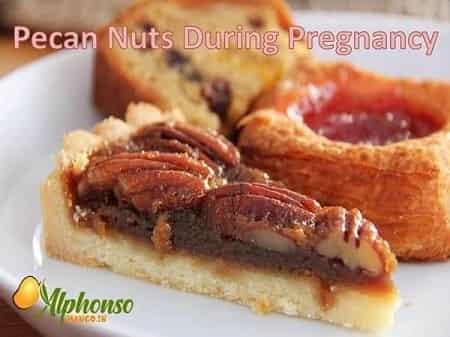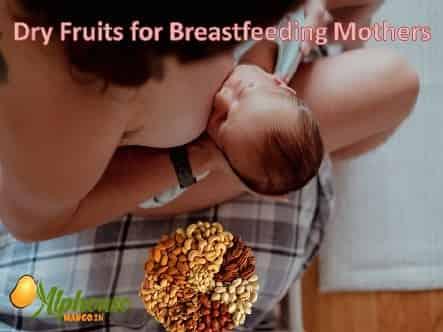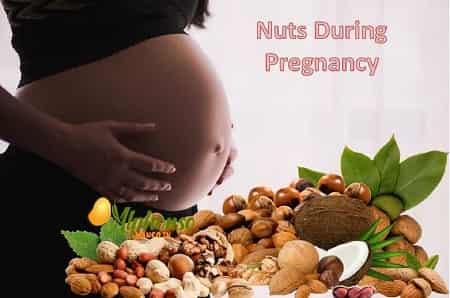
Pecan Nuts During Pregnancy
By Prashant Powle
Pecan Nuts during Pregnancy From trying to conceive to labor pain, you have many daily changes. Your body and food with morning sickness, mood swings, and everyday nausea changes. Buy...
almond nuts during pregnancy
are brazil nuts safe during pregnancy
are fox nuts good during pregnancy
are nuts allowed during pregnancy
are nuts dangerous during pregnancy
are nuts good for a pregnant woman
are nuts good for pregnant woman
are nuts good for you while pregnant
are nuts healthy during pregnancy
are nuts ok during pregnancy
are nuts okay during pregnancy
are nuts safe during early pregnancy
are nuts safe during pregnancy
are pecan nuts good during pregnancy
are pecan nuts safe during pregnancy
are pecans bad for pregnancy
are pecans healthy during pregnancy
are pecans ok during pregnancy
are pecans safe during pregnancy
are pecans safe to eat during pregnancy
are walnuts safe during pregnancy
benefits of kola nuts during pregnancy
benefits of pecan nuts during pregnancy
benefits of pine nuts during pregnancy
best nuts during pregnancy
best nuts for pregnant ladies
best time to eat nuts during pregnancy
betel nut in pregnancy is safe
brazil nuts during pregnancy
can eat cashew nuts during pregnancy
can eat ginkgo nuts during pregnancy
can eat nuts during pregnancy
can eat walnuts during pregnancy
can eating nuts during pregnancy cause allergies
can have nuts during pregnancy
can i eat nuts during pregnancy
can i have nuts during pregnancy
can i have pecan pie during pregnancy
can u eat nuts during pregnancy
can we eat fox nuts during pregnancy
can we eat nuts during pregnancy
can you eat nuts during pregnancy
can you eat pecan nuts during pregnancy
cashew nut for pregnant ladies
cashew nuts during first trimester of pregnancy
cashew nuts during late pregnancy
cashew nuts during pregnancy
cashew nuts during pregnancy 3rd trimester
cashew nuts during pregnancy benefits
cashew nuts during pregnancy first trimester
cashew nuts during pregnancy for baby
cashew nuts during pregnancy in hindi
cashew nuts during pregnancy is good
cashew nuts during pregnancy second trimester
cashew nuts for pregnant mother
cashew nuts in pregnancy safe
cashew nuts in pregnancy third trimester
consuming nuts during pregnancy
corn nuts during pregnancy
craving for nuts during pregnancy
craving nuts during pregnancy
craving nuts during pregnancy boy or girl
craving nuts during pregnancy gender
disadvantages of cashew nuts during pregnancy
disadvantages of nuts during pregnancy
does eating nuts during pregnancy cause allergies
does eating nuts during pregnancy prevent allergies
dry fruits and nuts during pregnancy
dry nuts during pregnancy
dry roasted nuts during pregnancy
eating cashew nuts during pregnancy third trimester
eating dry nuts during pregnancy
eating nuts during pregnancy
eating nuts during pregnancy benefits
eating nuts during pregnancy first trimester
eating nuts during pregnancy good
eating nuts during pregnancy is good
eating nuts during pregnancy may cure allergies
eating nuts in pregnancy benefits
eating pecan nuts during pregnancy
eating pecan pie during pregnancy
eating raw nuts during pregnancy
egg nuts during pregnancy
folic acid
folic acid in pregnancy
fox nuts during pregnancy
fox nuts safe during pregnancy
fried cashew nuts during pregnancy
fruits and nuts during pregnancy
ginger nuts during pregnancy
ginkgo nuts during pregnancy
grape nuts during pregnancy
groundnut during pregnancy
having cashew nuts during pregnancy
having nuts during pregnancy
having pista nuts during pregnancy
healthy nuts during pregnancy
honey roasted nuts during pregnancy
how is cashew nuts during pregnancy
how is nuts during pregnancy
how many apricots during pregnancy
how many brazil nuts for pregnancy
how many cashew nuts a day during pregnancy
how many cashew nuts per day during pregnancy
how many nuts a day in pregnancy
how many nuts per day during pregnancy
how many nuts should i eat during pregnancy
how many nuts to eat during pregnancy
how many nuts to eat per day during pregnancy
how many walnuts during pregnancy
how many walnuts per day during pregnancy
how much nuts during pregnancy
how much nuts should a pregnant woman eat daily
how much nuts should you eat during pregnancy
how much nuts to eat during pregnancy
how much nuts to eat in a day during pregnancy
how much walnuts during pregnancy
how much walnuts per day during pregnancy
how peacock pregnant
how to eat nuts during pregnancy
how to eat peanuts during pregnancy
how to take nuts during pregnancy
how to use nuts during pregnancy
importance of nuts during pregnancy
is eating nuts bad during pregnancy
is eating nuts during pregnancy safe
is eating nuts in pregnancy safe
is it safe to have nuts during pregnancy
is nut safe during pregnancy
is pecan nuts good for pregnancy
is pecan pie safe during pregnancy
is pecan safe during pregnancy
is pecan safe for pregnancy
macadamia nuts during pregnancy
mixed nuts during pregnancy
mixed nuts for pregnant ladies
mixed nuts for pregnant woman
monkey nuts during pregnancy
more nuts during pregnancy
nut advice for pregnant teachers
nut during pregnancy
nutritional value of nuts during pregnancy
nuts and bolts pregnancy journal
nuts and raisins during pregnancy
nuts and seeds during pregnancy
nuts and seeds pregnancy
nuts during 6th month of pregnancy
nuts during 8th month of pregnancy
nuts during early pregnancy
nuts during first trimester
nuts during first trimester of pregnancy
nuts during last month of pregnancy
nuts during pregnancy
nuts during pregnancy benefits
nuts during pregnancy first trimester
nuts during pregnancy is it good
nuts during pregnancy nhs
nuts during pregnancy second trimester
nuts during pregnancy third trimester
nuts during pregnancy uk
nuts during pregnancy uses
nuts during second trimester
nuts during third trimester
nuts for a pregnant woman
nuts for early pregnancy
nuts for pregnancy
nuts for pregnancy nausea
nuts for pregnant ladies
nuts for pregnant woman
nuts good for pregnant woman
nuts in pregnancy safe
nuts in pregnancy third trimester
nuts in pregnancy uk
nuts intake during pregnancy
nuts not to eat during pregnancy
nuts ok during pregnancy
nuts okay during pregnancy
nuts recommended during pregnancy
nuts should eat during pregnancy
nuts to avoid during pregnancy
nuts to avoid pregnancy
nuts to be eaten during pregnancy
nuts to eat during pregnancy
nuts to eat pregnancy
nuts to get pregnant
ok to eat nuts during pregnancy
peanuts in 9th month of pregnancy
pecan during pregnancy
pecan for pregnancy
pecan nut during pregnancy
pecan nuts during pregnancy
pecan nuts for pregnancy
pecan nuts good for pregnancy
pecan nuts in pregnancy
pecan nuts safe during pregnancy
pecan pie during pregnancy
pecan pie safe during pregnancy
pecan safe during pregnancy
pine nuts during pregnancy
pine nuts okay during pregnancy
pista nuts for pregnant lady
pistachio nuts during pregnancy
precautions during 9 month of pregnancy
quantity of nuts during pregnancy
rancid nuts during pregnancy
raw nuts during pregnancy
raw pecans during pregnancy
roasted cashew nuts during pregnancy
roasted nuts during pregnancy
should you avoid nuts when pregnant
soaked nuts during pregnancy
tiger nuts during pregnancy
too many nuts during pregnancy
too much nuts during pregnancy
unsafe nuts during pregnancy
uses of cashew nuts during pregnancy
uses of eating nuts during pregnancy
uses of pista nuts during pregnancy
wasabi nuts during pregnancy
what are the best nuts to eat while pregnant
what happens if a man nuts in a pregnant woman
what is the best nuts during pregnancy
what kind of nuts during pregnancy
what nuts are bad for pregnancy
what nuts can you eat during pregnancy
what nuts good for pregnant
what nuts to avoid during pregnancy
what nuts to eat during pregnancy
when to eat nuts during pregnancy
which nuts can eat during pregnancy
which nuts during pregnancy
which nuts eat during pregnancy
which nuts to avoid during pregnancy
why are nuts good for pregnancy
why eat nuts during pregnancy
why no nuts during pregnancy
why should you not eat nuts when pregnant
why to avoid nuts during pregnancy
why to eat cashew nuts during pregnancy
Read more


